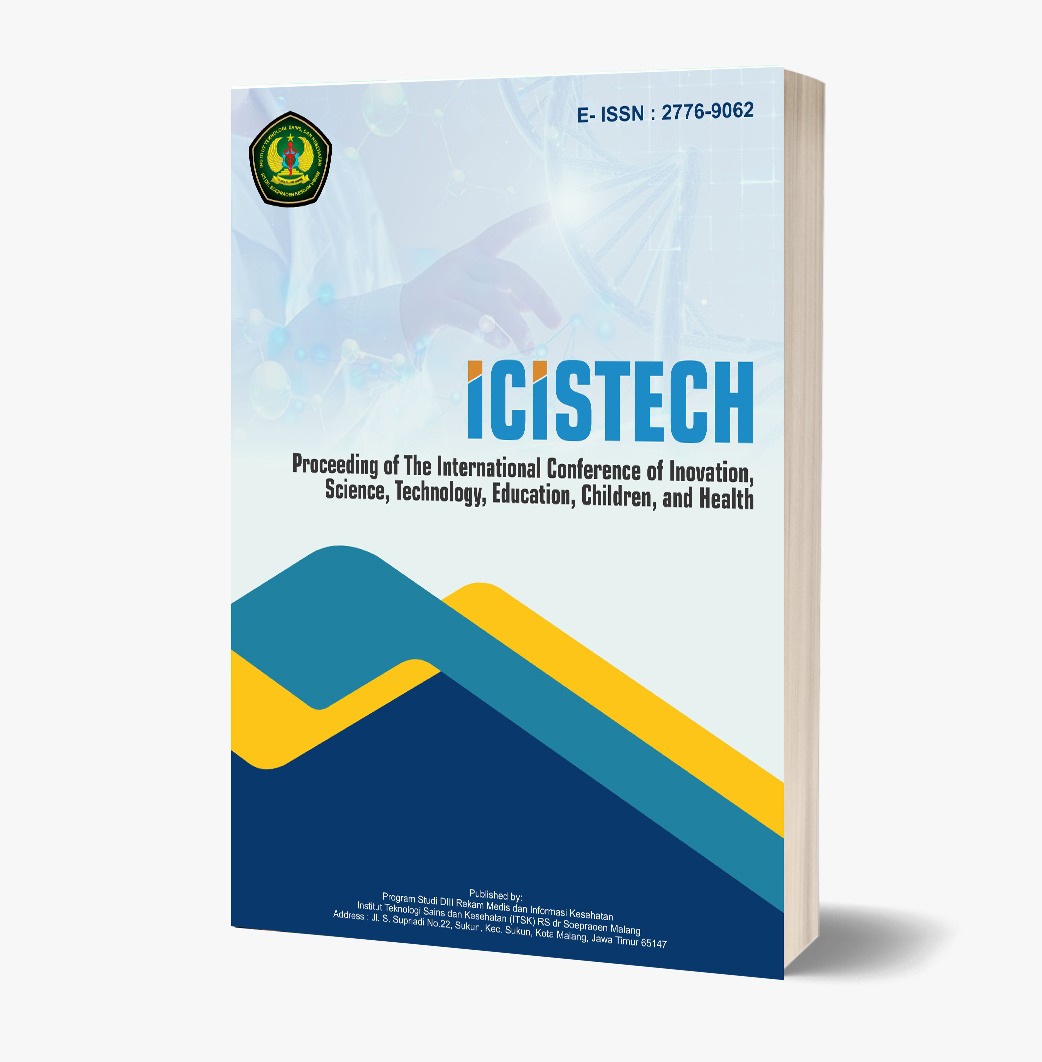The Impact of Transformational Leadership Style on Employee Engagement
DOI:
https://doi.org/10.62951/icistech.v1i1.107Keywords:
Leadership, Transformational, EmployeeAbstract
It is important that companies attract and retain employees. The human resource is important for company in achieving the goal. Employees who feel engaged have high levels of involvement and satisfaction. The employees are said to be engaged when they have passion, commitment and the willingness to expend their effort to help the employer in achieving the goals. One of the ways to keep employee productivity is through employee engagement. The organizational effectiveness will be realized if the employees who perform assigned duties are willing to engage in activities. The leader should make employees feel comfortable in doing the job. Research design used in this research is descriptive research design and correlational research design. Research methods which used are descriptive statistic analysis, validity and reliability test, normality test, coefficient correlation, coefficient of determinant, simple linear regression analysis and Z testing. The conclusion of this research is there is impact transformational leadership style towards employee engagement. The conclusion is proved with Z test. The calculation of Z test shows that Zcount (10.13) is higher than Ztable (1.96). The alternative hypothesis is accepted and null hypothesis is rejected. Coefficient of correlation is 0.896. It shows that there is strong and positive relationship between variables. Coefficient of determination is 80.3%. It shows that employee engagement can be explained by transformational leadership style in 80.3% while the remaining in 19.7% can be explained by other factors.
References
Agus Susanto, Kosasih, H., Linda, T., Satrianny, I. P., & Thamrin. (2022). The influence of the work environment and individual characteristics on employees’ job satisfaction. Jurnal Ilmiah Hospitality, 11(2), 53–54.
Akbar, S., Hermanto, H., & Susanto, A. (2022). Pengaruh sistem pemberian tambahan penghasilan pegawai (TPP) terhadap kepuasan dan motivasi kerja aparatur sipil negara (ASN) di Dinas Pariwisata Pemuda dan Olahraga Kota Bima. Scientific Journal of Reflection: Economic, Accounting, Management and Business, 5(3), 574–585. https://doi.org/10.37481/sjr.v5i3.510
Andika, I. M. B. (2022). Fostering readiness to change through work engagement in Indonesian government organizations. International Journal of Social Science and Business, 7(1), 86–95. https://doi.org/10.23887/ijssb.v7i1.48032
Anshori, M. Y., Karya, D. F., Muslihah, N., & Herlambang, T. (2020). Analysis of transformational leadership style for employee performance with job satisfaction as an intervening variable. 29(9), 3967–3973.
Assaly, A., Wijaya, E., Theng, B. P., & ... (2021). Pelatihan Microsoft Excel di TK Kana Deli Serdang Sumatera Utara. Abdimas, 1(2), 12–15. https://ejournal.politeknikmbp.ac.id/index.php/abdimaspkm/article/view/60
Astika, E., Nasib, Bhastary, M. D., Amalia, F., & Hou, A. (2022). Effect of work environment and workload on employee satisfaction. JMARI, 3(1), 1–12.
Awan, S. A. B. S. I. M. A. I. A. B. F. A. M. Z. R. M. U. (2021). Impact of leadership styles on employees’ performance with the moderating role of positive psychological capital. Total Quality Management and Business Excellence, 32(9–10), 1085–1105. https://doi.org/10.1080/14783363.2019.1665011
Aziez, A. (2022). The effect of employee engagement on employee performance with job satisfaction and compensation as mediating roles. JOSR: Journal of Social Research, 1(3), 221–230.
Bale, S. (2021). Impact of employee engagement on performance at a pump supplier. International Journal of Multi Discipline Science (IJ-MDS), 4(1), 1–8.
Dewiana Novitasari. (2021). The role of leadership in innovation performance: Transactional versus transformational style. JIMFE (Jurnal Ilmiah Manajemen Fakultas Ekonomi), 7(1), 26–36. https://doi.org/10.34203/jimfe.v7i1.2981
Dimotakis, C. A. H. E. P. K. A. J. K. N. (2020). Does servant leadership’s people focus facilitate or constrain its positive impact on performance? An examination of servant leadership’s direct, indirect, and total effects on branch financial performance. Group and Organization Management, 45(4), 479–513. https://doi.org/10.1177/1059601120901619
Emmywati, E., Sukatmadiredja, N. R., & Wibowo, B. S. (2020). Job crafting, work engagement and sustainability for employee performance in the Directorate of Telecommunications Directorate General of Postal and Informatics Implementation in Jakarta. Media Mahardhika, 18(2), 179–191. https://doi.org/10.29062/mahardika.v18i2.146
Engelbrecht, O. M. S. A. S. (2021). How transformational leadership, psychological contract violation, empowerment and affective commitment influence employees’ intention to quit an organization. South African Journal of Business Management, 52(1), 1–12. https://doi.org/10.4102/sajbm.v52i1.2278
Febriansyah, H. (2019). How does religion influence employee engagement in the Indonesian context? Jurnal Manajemen Bisnis, 10(2). https://doi.org/10.18196/mb.10180
Handari, G. K. S. H. S. (2020). Employee performance optimization through transformational leadership, procedural justice, and training: The role of self-efficacy. Journal of Asian Finance, Economics and Business, 7(12), 995–1004. https://doi.org/10.13106/jafeb.2020.vol7.no12.995
Hasrul Azwar Hasibuan, Syaifuddin, Rusiadi, & Nasib. (2022). Changes in the performance of millennial employees during the COVID-19 period at four-star hotels in Medan City. International Journal of Research and Review, 19(April), 320–324.
Hetland, J. (2018). Daily transformational leadership and employee job crafting: The role of promotion focus. European Management Journal, 36(6), 746–756. https://doi.org/10.1016/j.emj.2018.01.002
Isabel, R. (2021). The effect of servant leadership on employee outcomes: Does endogeneity matter? Quality and Quantity, 1–19. https://doi.org/10.1007/s11135-021-01109-7
Kosasih, H., Tarigan, S. A., Wijaya, E., Susanto, S., Susanto, A., & Leonardi, F. (2023). Penyuluhan manajemen pembuangan sampah yang baik di SMP Swasta Toby Bethlehem Medan. Jurnal Peradaban Masyarakat, 3(1), 33–35. https://doi.org/10.55182/jpm.v3i1.226
Liana, L. (2021). The effects of servant leadership, organizational climate, and work motivation on teacher’s performance in a level education centre. Keloa Jurnal Manajemen Pendidikan, 8(2), 134–146. https://ejournal.uksw.edu/kelola/article/view/5117/1953
Downloads
Published
How to Cite
Issue
Section
License
Copyright (c) 2024 Proceeding of The International Conference of Inovation, Science, Technology, Education, Children, and Health

This work is licensed under a Creative Commons Attribution-ShareAlike 4.0 International License.













